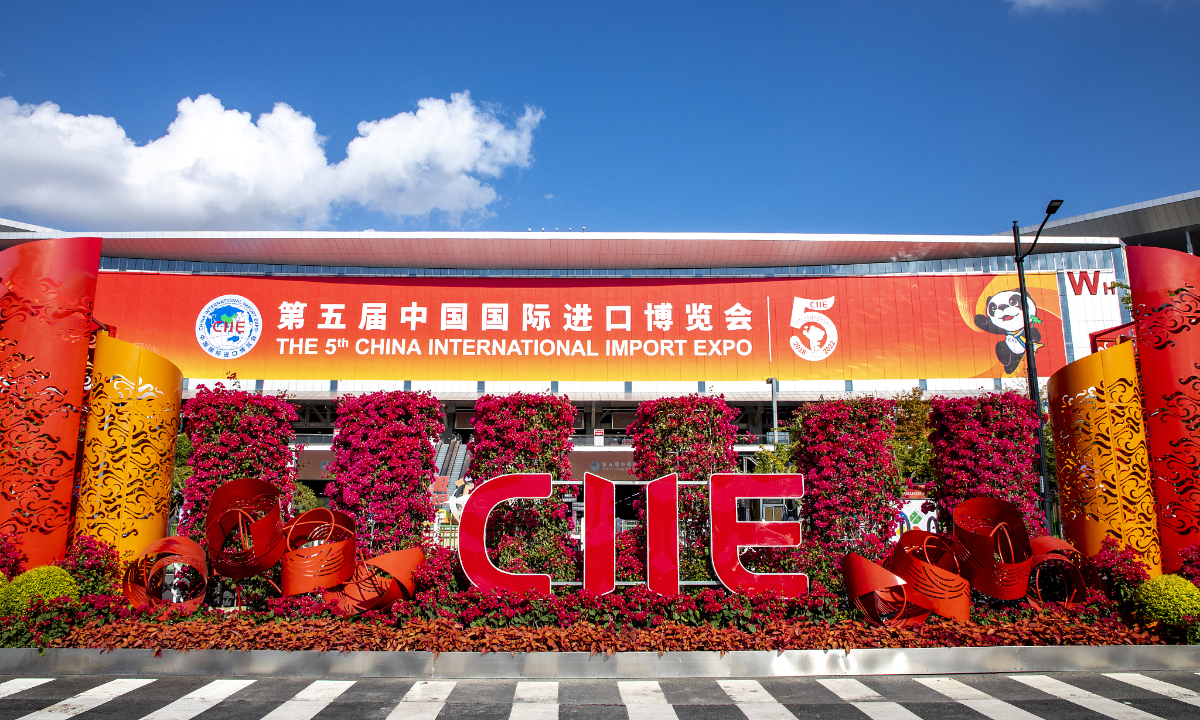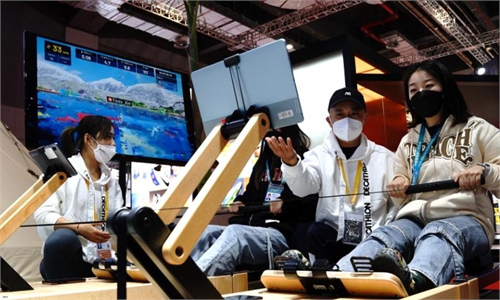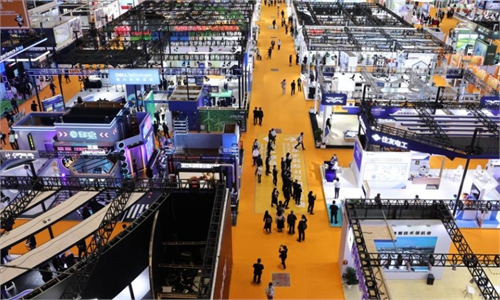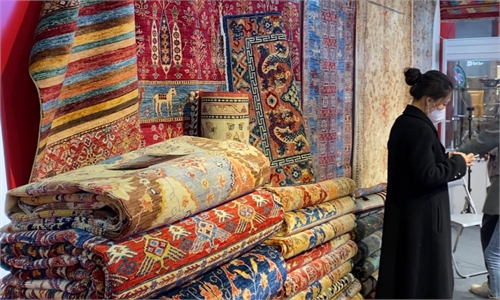German companies hail Scholz visit as beneficial for business
CIIE exhibitors confident of business growth in Chinese market

CIIE Photo:VCG
Good relations between China and Germany are conducive to creating a positive business environment for German companies operating in China, German businesses at the ongoing China International Import Expo (CIIE) told the Global Times, as they displayed delight at German Chancellor Olaf Scholz's recent visit to Beijing, which they viewed as a positive signal for economic cooperation between the two countries.
Promoting their latest products and technologies at the expo, German companies elaborated on their plans to expand business and investment in the world's second largest economy, which shows the importance of the Chinese market to German businesses, despite headwinds caused by the coronavirus and some voices in the political circle calling on Germany to "reduce dependence on China".
German companies are active players in China's largest import fair. Last year, more than 170 German companies attended the CIIE with a total exhibition area of about 40,000 square meters. This year, a large number of German industrial giants including Siemens, Mercedes-Benz and Bosch attended the fifth session of the CIIE.
Meanwhile, a special CIIE train travelling on the China-Europe Railway Express, which departed from Germany's Hamburg, was due to arrive in Shanghai on Sunday, a report from the China Railway Shanghai Bureau Group said. The train is carrying 14 containers of car parts and tubing materials, which will be exhibited at the CIIE.
German companies' collective display at the CIIE coincided with a visit by German Chancellor Olaf Scholz to China on Friday. Some exhibitors told the Global Times that they saw the visit as sending a positive signal about the two countries' relationship.
"Good political relations between China and Germany are conducive to creating a positive business environment for German companies operating in China, dispelling worries that companies have about developing in China," Lyman Tu, Wilo group vice president of China and Southeast Asia, told the Global Times.
According to Tu, close bilateral trade and economic cooperation is important to businesses and benefits the recovery of the global economy.
Tu said that he believed the Chinese government will continue to support German enterprises to invest and develop in China.
Allan Gabor, president of Merck China, told the Global Times that in the face of global uncertainty and volatility, China's unwavering efforts to advance opening-up and economic globalization will incentivize multinational companies to tap new business opportunities in the country.
"Looking to the future, while exploring more cooperation fields in traditional sectors, efforts should be made to energize cooperation in emerging areas like new energy, artificial intelligence and digitalization (between the two countries)," Gabor said.
At the CIIE's booths, a number of German exhibitors told the Global Times how they valued the importance of the Chinese market, which has vast opportunities to develop despite global economic woes.
Xia Fuliang, president of German specialty chemicals producer Evonik Greater China, told the Global Times that China is the biggest and fastest-growing market for specialty chemicals in the world, which has led the company to "increase its footprint" in the country.
The company is continuing to increase production capacity in China. For example, it recently opened its first global lithium-ion battery center in the Evonik Shanghai Innovation Park. Expansion of other local research and development facilities is "in full swing", Xia said.
Maximilian Foerst, president of ZEISS Greater China, which has attended CIIE five times, told the Global Times that the importance of the Chinese market has become key to the company's development, as China has become the firm's fastest-growing single market in the world, and the growth rate of the Chinese market was twice that of other markets in the past five to 10 years.
He has noticed many signs of change in China's demographics, which will present new business opportunities for the company. For instance, nearly half of the world's people with myopia are in China. That means growing business for the firm's medical equipment sales in China.
The rapid development of the battery industry in China has also brought unprecedented opportunities for the company's quality inspection and control products, he said.
"As the world's supply chain is getting more fractured, we have decided to further increase our investment in China," he said, adding that the company has set up two investment companies in China, and it is adopting a localization strategy of using earnings in the Chinese market to re-invest locally.
Tu said that Wilo has full confidence in China's economic development, and it believes that the Chinese market will keep growing as the government has pledged to deepen reform and opening-up.
He said that the company has recently built a production base in Changzhou of East China's Jiangsu Province, which is expected to start production at the beginning of 2023.
Tian Yun, a veteran macroeconomist, said that China and Germany have large space for cooperation in terms of industrial development. Many German industries are relatively advanced, particularly in manufacturing, medicine and chemicals. With such technical advantages, German companies should be willing to expand their capacity in China.
"German enterprises have actually enjoyed fast growth in China, some making China their global manufacturing base, as they can hardly rely on their internal market, where population is far smaller than China's, to cash out their technologies or products," he said.
Tian said that China and Germany could establish some parts supply chains like what has been formed between China and South Korea or Japan, particularly after the launch of the China-Europe Railway Express service.



